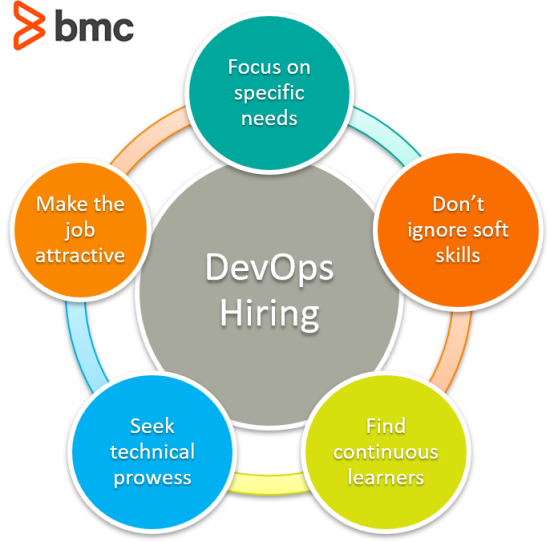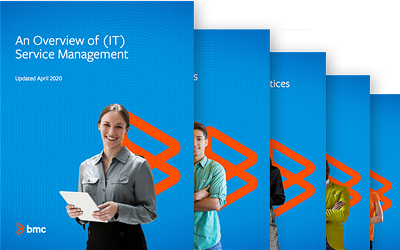DevOps skills are in high demand as organizations increasingly recognize the need for collaborative Devs, Ops, and QA operations. Every organization wants to implement DevOps and every potential engineering candidate markets DevOps among their skill set. According to recent research, the DevOps solutions market is growing by 19.1% compounded annually to reach the $15 billion mark by 2026.
This is precisely where the problem lies for both employers and applicants: DevOps is not a separate domain of engineering, a tool, or a job function. Instead, it’s a cultural approach and a methodological framework toward rapidly developing high quality software at scale—which explains why it’s so desirable. Implementing DevOps, then, requires some combination of many skills:
- Communication
- Writing efficient code
- Knowledge of DevOps framework, workflows, and tooling
- Teamwork, collaboration, and empathy
- Customer and business-centric mindset
- Versatility, passion, and productivity
- Continuous improvement
- And many more….
The best candidates should be well adept with these skills and can come from a variety of engineering backgrounds. In fact, DevOps teams are typically versatile, consisting of cross-functional experts in the domain of development, testing, and IT operations. How to find the most suitable candidates to fill DevOps positions? Here are some tips for hiring the best DevOps candidates:

1. Focus on specific engineering needs
Identify the current strength of your DevOps teams and understand what gaps must be filled. Find candidates who can complement DevOps team members with the missing skillset. DevOps can mean different things to different departments. The DevOps umbrella can encompass design, implementation, automation, security, testing, systems administration, release and management of various technology and HR aspects of the organization.
When your needs or your budget are limited, you can employ junior-level engineers with the necessary skills and engage external consultants for brief durations. Consultants are typically expensive to retain but can be a cost-effective approach to fill in limited gaps in your pursuit of DevOps.
2. Don’t ignore soft skills
DevOps thrives on communication and collaboration among cross-functional engineers and departments. DevOps also represents a cultural shift that encourages engineers to build fast, learn and improve with customers, and create with the business top of mind. A successful hire will demonstrate the ability, beyond engineering and academic prowess, to enable the DevOps culture at your organization. It’s not a matter of searching for relevant keywords on resumes but rather understanding how candidates might behave in the actual work environment.
Behavioral and psychometric recruitment tests could be a useful starting point, but also consider evaluating shortlisted candidates with case projects where they engage with other team members.
3. Find continuous learners
DevOps often requires the use of new technologies, many of which come with a steep learning curve. Engineers successful at DevOps are comfortable learning new methods and solutions to solve existing challenges in new ways. They take particular interests in discovering and working with new methods, on and off the work routine.
- For junior-level hires, look for personal projects and contributions to open-source technologies.
- For experienced candidates, find how they chose their IT environments, infrastructure and architecture design, solutions and services, methods and frameworks in recent years. How well did they keep pace with the changing technology landscape?
The ideal candidate should be able to hit the ground running and take full advantage of the latest technology resource available in the industry, which is growing rapidly.
4. Seek technical prowess
Technology design and implementation is a core job function of engineers adopting DevOps. A good engineer will have an all-round knowledge and understanding of software engineering functions that were previously limited to domain-specific experts. DevOps professionals should have past experience and interest in the intersection of a variety of software engineering domains including:
A DevOps practitioner will likely engage and involve in decisions associated with all of these engineering disciplines, even when their routine work will focus on a limited few disciplines such as development, testing or operations. In order to make correct decisions and solve problems, deep technical prowess across a range of technologies should be highly valued.
For example, DevOps engineers will likely have to automate infrastructure management, configurations, and several components of the build and testing pipeline. However, a DevOps expert will know exactly the most effective approach with or without automating a process. Automating waste processes only escalates the issues across the SDLC pipeline. The right candidate with sufficient technology of the wider SDLC process will know when to avoid automating for the sake of it. The job for recruiters is to find engineers with the right mindset and thorough understanding toward multiple technical aspects of the DevOps cycle.
5. Make the job attractive to the right talent
The first step to hiring DevOps experts is to acknowledge the need in your organization. The second step is to attract the right talent—a person who can fill that gap and help realize the DevOps vision. However, top DevOps experts are likely already engaged in senior-level positions, happily employed with great salaries and financial benefits, work-life balance, and career growth prospects within their existing companies. They must have compelling reasons to switch to your company; a simple LinkedIn or networking event contact might not be tempting enough.
That’s why the DevOps talent market segment is candidate driven. Attracting such talent will require financial compensation well above the industry average for software engineering candidates. A smooth hiring process is also essential: long periods of downtime, repetitive interviews, and negotiations over a relatively low compensation will quickly discourage the right candidate.
Assume your ideal DevOps candidate will have several offers on the table at any given moment—make sure your job package is the most attractive of the lot.
Download Now: ITIL 4 Best Practice e-Books
These all-new for 2020 ITIL e-books highlight important elements of ITIL 4 best practices. Quickly understand key changes and actionable concepts, written by ITIL 4 contributors.
Additional resources
For more information, browse our BMC DevOps Blog or check out these articles:
- DevOps Guide, with 30+ articles, including:
- IT Recruiting: Strategy and Tips for Success
- How (and Why) to Write a Great IT Job Listing
- IT Salary Trends: The Complete Roundup
- The IT Skills Gap Explained
Start Discovering Now
These postings are my own and do not necessarily represent BMC's position, strategies, or opinion.
See an error or have a suggestion? Please let us know by emailing blogs@bmc.com.







